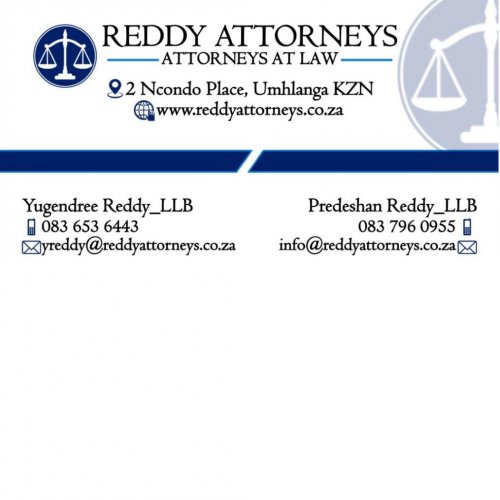Best Sanctions & Export Controls Lawyers in Sandton
Share your needs with us, get contacted by law firms.
Free. Takes 2 min.
List of the best lawyers in Sandton, South Africa
About Sanctions & Export Controls Law in Sandton, South Africa
Sanctions and export controls refer to legal measures that regulate how goods, services, technology, and financial transactions cross South Africa’s borders. In Sandton - a major business and financial district in Johannesburg - these laws play a crucial role in international trade compliance, investment, and finance. South Africa implements both United Nations-mandated sanctions and its own national controls, with Sandton-based companies often facing complex legal requirements due to their engagement in international business. Understanding these rules is essential to avoid significant legal and financial consequences.
Why You May Need a Lawyer
Navigating sanctions and export controls is complicated. People and businesses in Sandton may need legal advice for various reasons, including:
- Conducting due diligence before entering into business with foreign partners.
- Exporting goods, technology, or services outside South Africa.
- Receiving inquiries or investigations from government regulators.
- Understanding comprehensive or targeted sanctions against countries or individuals.
- Applying for export licenses or permits for controlled goods.
- Assessing compliance risks in cross-border mergers or acquisitions.
- Responding to asset freezes or other enforcement actions.
- Seeking clarity on dual-use goods or re-export requirements.
- Training staff on compliance obligations and internal policies.
In many of these scenarios, failure to comply can result in severe penalties, reputational damage, or criminal prosecution, making legal support essential.
Local Laws Overview
Sanctions and export controls in Sandton, and South Africa generally, are governed by a combination of national laws and international obligations. Key aspects include:
- National Sanctions: South Africa enforces sanctions issued by the United Nations Security Council and, occasionally, implements unilateral national sanctions through government regulations.
- Export Control Laws: The National Conventional Arms Control Act and the Non-Proliferation of Weapons of Mass Destruction Act regulate the export of military goods and certain sensitive technologies.
- Controlled Goods: Goods, technology, and services listed under South Africa’s control lists require permits from the relevant authorities before export or re-export.
- Financial Restrictions: The Financial Intelligence Centre Act and exchange control regulations may restrict transfers of funds, especially in relation to sanctioned countries or individuals.
- Due Diligence: Businesses are required to perform due diligence to ensure they are not indirectly assisting sanctioned entities or individuals.
- Penalties: Breaches of sanctions and export controls can result in criminal prosecution, heavy fines, asset forfeiture, and other penalties.
Frequently Asked Questions
What are sanctions and export controls?
Sanctions are legal measures that restrict or prohibit business with specific countries, entities, or individuals. Export controls are regulations that require permits or licenses to export certain goods, services, or technologies out of South Africa.
Who enforces sanctions and export controls in Sandton?
Sanctions are primarily enforced by relevant government departments including the Directorate for Non-Proliferation, the National Conventional Arms Control Committee, and the Financial Intelligence Centre. Customs officials also play a key role.
What happens if I violate sanctions laws?
Violations may result in criminal charges, heavy fines, imprisonment, debarment from government contracts, and loss of export privileges.
Do I need a license to export goods from Sandton?
If you are exporting controlled goods, technology, or services - such as arms, dual-use items, or sensitive software - you must obtain a license from the appropriate regulatory body before exporting.
Are there specific countries I cannot do business with?
Yes, South Africa enforces United Nations Security Council sanctions lists, which may prohibit business with certain countries, organizations, or individuals. Check current lists before entering any international transaction.
Can my company be penalized for unknowingly dealing with a sanctioned entity?
Yes. Lack of knowledge is not always a defense. Companies are expected to conduct thorough due diligence to prevent indirect relationships with sanctioned parties.
How do I know if my product is controlled?
You can consult South Africa’s control lists, available from the Department of Trade, Industry, and Competition or the Directorate for Non-Proliferation. Professional legal advice is recommended to interpret these lists accurately.
How do sanctions affect financial transactions?
Sanctions may freeze assets or restrict financial transactions with certain countries or individuals. South African banks and financial institutions play a significant compliance and reporting role.
What is dual-use technology?
Dual-use technology refers to items that have both civilian and military applications. These items often require special permits for export or transfer out of the country.
Do South African businesses need to comply with foreign (for example, European Union or United States) sanctions?
Generally, South African businesses must comply with local law, but in global transactions or if using foreign banks, they may be affected by extraterritorial enforcement of overseas sanctions laws. Legal advice is strongly recommended in cross-border situations.
Additional Resources
For those seeking further help or information, consider the following resources and organizations: - Department of Trade, Industry, and Competition (DTIC) - Directorate for Non-Proliferation of Weapons of Mass Destruction - National Conventional Arms Control Committee (NCACC) - Financial Intelligence Centre (FIC) - South African Revenue Service (Customs) - Sandton-based commercial law firms with export compliance departments - Legal Aid South Africa (for guidance or referrals)
Next Steps
If you are concerned about potential sanctions or export control issues, it is wise to seek legal assistance before acting. Start by gathering all relevant facts and documentation, such as contracts, product information, and correspondence. Consult a qualified lawyer with experience in international trade or sanctions law, ideally based in Sandton or familiar with the local business environment. A legal professional can help you assess risks, develop compliance programs, secure licenses, and represent you in case of investigations or disputes. Early legal guidance is key to avoiding costly mistakes and ensuring your business operates within the law.
Lawzana helps you find the best lawyers and law firms in Sandton through a curated and pre-screened list of qualified legal professionals. Our platform offers rankings and detailed profiles of attorneys and law firms, allowing you to compare based on practice areas, including Sanctions & Export Controls, experience, and client feedback.
Each profile includes a description of the firm's areas of practice, client reviews, team members and partners, year of establishment, spoken languages, office locations, contact information, social media presence, and any published articles or resources. Most firms on our platform speak English and are experienced in both local and international legal matters.
Get a quote from top-rated law firms in Sandton, South Africa — quickly, securely, and without unnecessary hassle.
Disclaimer:
The information provided on this page is for general informational purposes only and does not constitute legal advice. While we strive to ensure the accuracy and relevance of the content, legal information may change over time, and interpretations of the law can vary. You should always consult with a qualified legal professional for advice specific to your situation.
We disclaim all liability for actions taken or not taken based on the content of this page. If you believe any information is incorrect or outdated, please contact us, and we will review and update it where appropriate.















